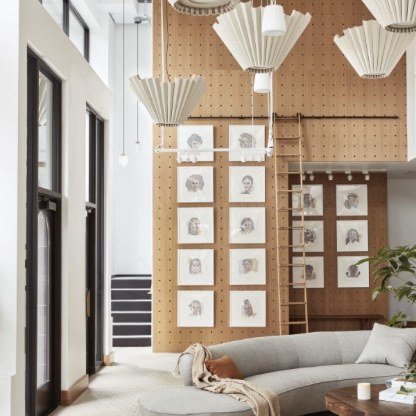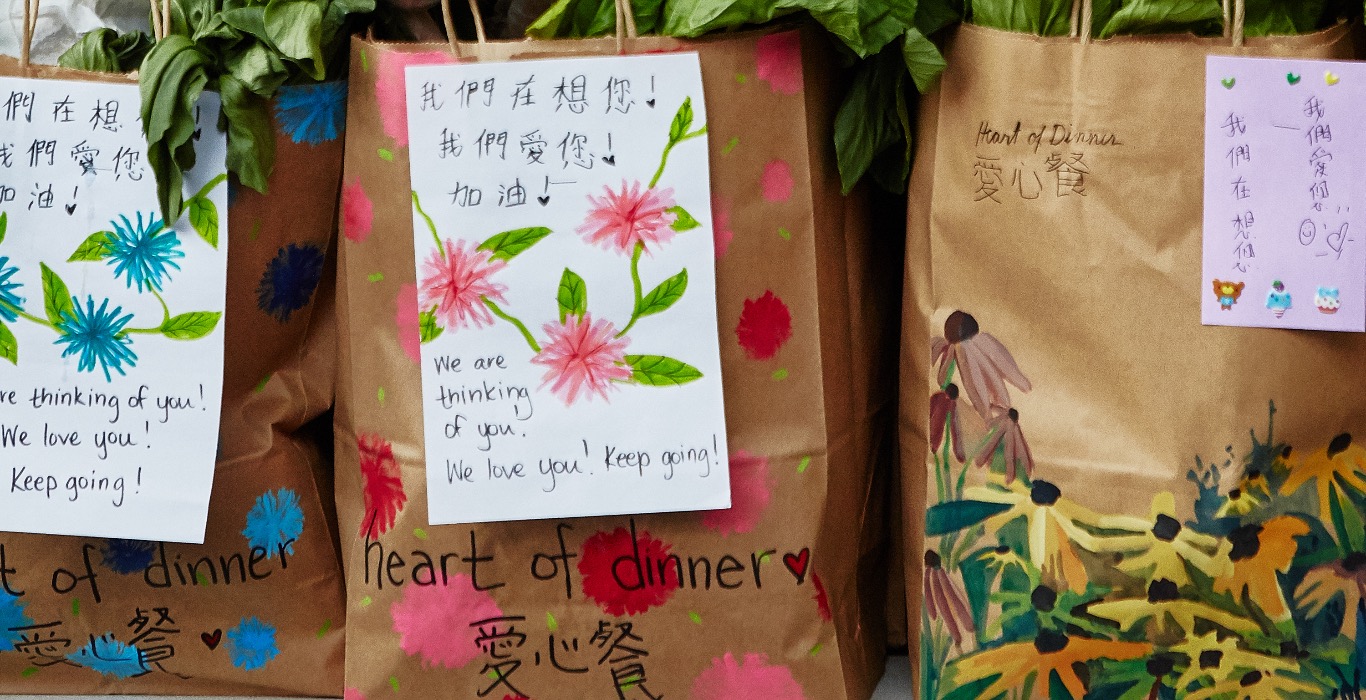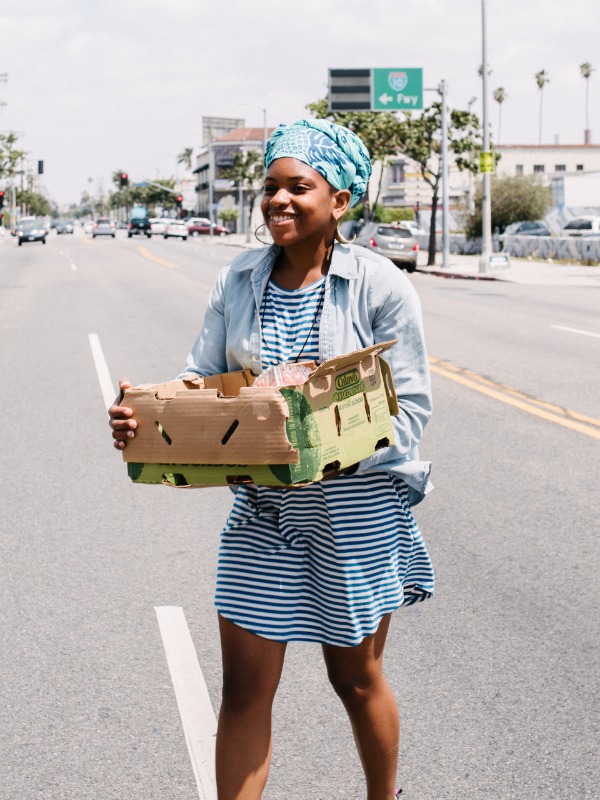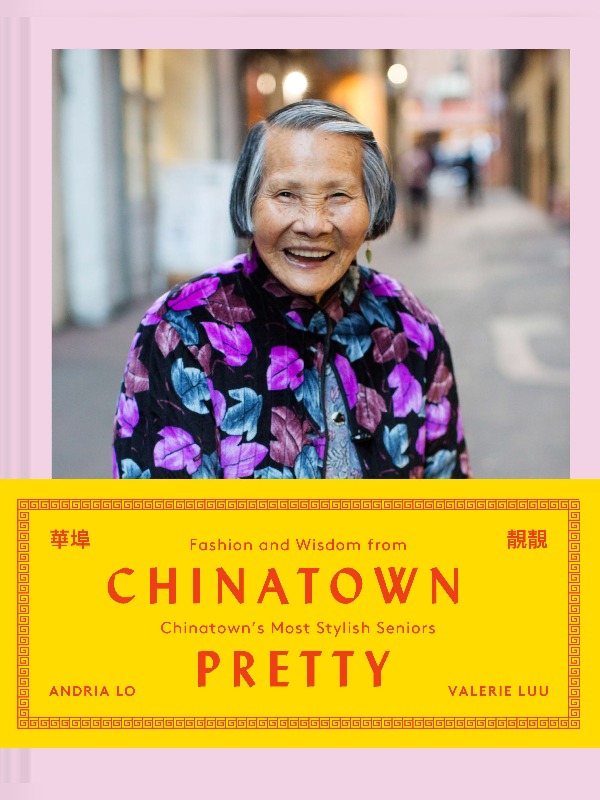HELPING CHINATOWN’S MOST VULNERABLE
“Asian-American seniors over the age of 65 are the second largest population experiencing poverty. The numbers worsened with the issues of food insecurity exacerbated by COVID-19.”
The duo’s care packages include senior-friendly meals and fresh produce that are popular within Asian households. Interested in supporting the cause? Visit heartofdinner.com to learn how you can get involved. Here, Chang explains the important nuances of serving this homebound population and Heart of Dinner’s vision for keeping Chinatown going in the face of a pandemic.



Let’s start with an overview of your work.
I’m an actor-writer and founder of 88 Cups of Tea, a digital publication and podcast for writers and storytellers. Moonlynn is a restaurateur. Together, as romantic life partners, we put our passion and skill sets towards launching the #LovingChinatown initiative through Heart of Dinner to counter hunger and isolation within the Asian-American immigrant elderly communities of Manhattan, Brooklyn, and Queens in the form of hot meals, fresh produce, pantry essentials and handwritten letters of encouragement in Chinese, Korean or Japanese. These are all packed and delivered in brown bags with hand-illustrated artwork from our community of volunteers.
What led you to this mission?
We first created Heart of Dinner as a donation-based 12-15 seater supper club in 2015, hosted in our Downtown Los Angeles loft with the mission to instill a sense of community by nourishing the minds, hearts and bellies of acquaintances and strangers. We brought like-minded individuals together over a shared love of food and hearty conversations, and we would donate portions of proceeds to food-based charities. Due to the lack of space in our current apartment, we put a pause on Heart of Dinner’s supper clubs when we moved to NYC two years ago.
How did the events of 2020 shift your focus?
In early 2020, the experiences of being on the receiving end of racist and xenophobic remarks, hearing about local Asian-owned restaurants suffering destructive losses prior to the mandates being put into place, and seeing news of violent attacks towards Asian-American immigrant elderly catapulted us into a frenzy of all-nighter brainstorming sessions of how to provide for our community and we acted quickly at every turn, with every instinctual pivot, from providing donated food for families and books for children to posting about Chinatown small restaurants and encouraging our followers to support their businesses. We felt at home providing nourishment for our senior community and remained focused on this demographic.
What are the biggest challenges you’ve faced and how can we support?
It’s just the two of us maintaining the core logistics, so the biggest challenge is finding ways to sustain without burning out. Donations are crucial to help us continue operating. We’re currently operating month-to-month, all dependent on the amount of donations that come in. Spreading awareness about our efforts, fundraising on our behalf—these are all incredibly helpful.


“Within a majority of the Asian-American immigrant population, especially with the senior population, a sense of pride and not wanting to burden others is deeply weaved into the culture, making it difficult for the seniors to ask for help.
Race and understanding the particular culture from that race matters when approaching issues surrounding food-insecurity .”
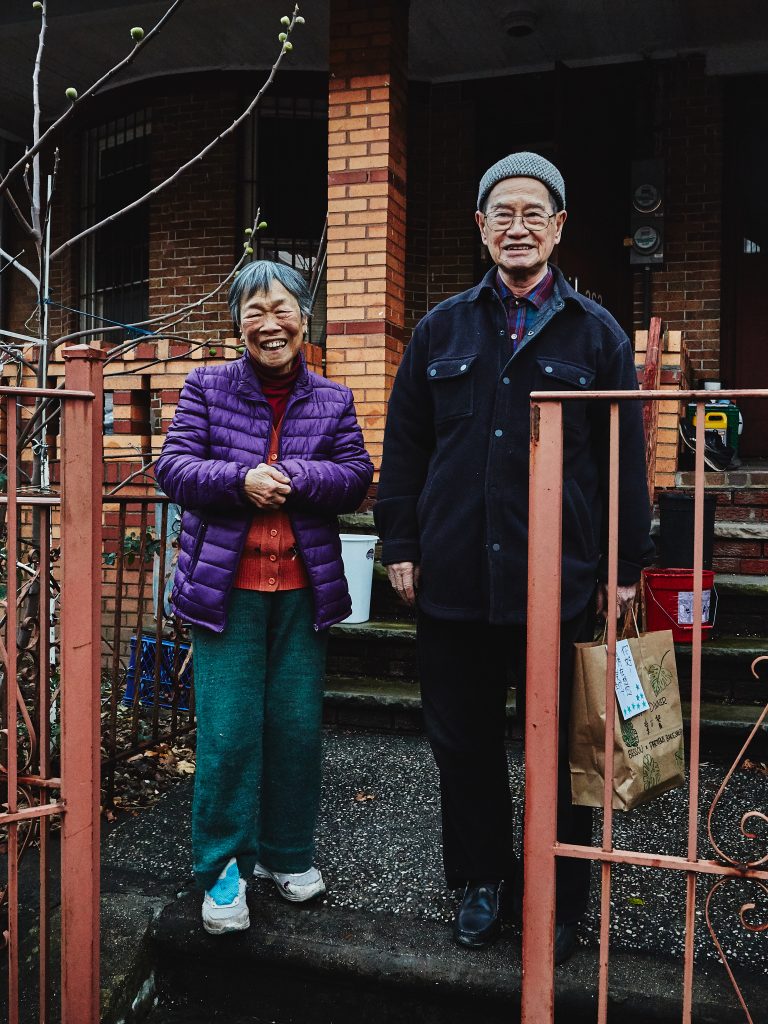
How does your work help to address issues of food equity in Asian communities?
Asian Americans are among the fastest growing demographic in the U.S., and pre-pandemic, Asian-American seniors over the age of 65 are the second largest population experiencing poverty. The numbers have only worsened with the issues of food insecurity exacerbated by COVID-19. Due to cultural barriers, the food that was provided to them by the government was inaccessible. We were often told by social services organizations that many of the Asian-American seniors were unsure of what to do with items like canned tuna, many of the recipients were struggling to open the cans due to arthritis, and a majority do not know how to integrate it in their day-to-day cooking. Through Heart of Dinner, we provide senior-friendly hot foods and fresh produce that are popular within Asian households. Our meals are low in oil, salt, sugar and soft on the teeth while being flavorful and nutritious. Knowing our elderly recipients receive meals that help them during this time gives us the motivation to continue our work.
Why does race matter when we talk about these issues?
We are both born and raised in the U.S. by immigrant parents. With my family hailing from Taiwan and Malaysia, and Moonlynn’s parents from Taiwan, we understand what it means to have a responsibility for the generations before us who sacrificed to provide the privileges we have today. That kind of understanding is often unspoken but shown through action. We had one of our dinner recipients tell us that she did not want our volunteers to come all the way from Manhattan to drop off the care package to her in Brooklyn, about an hour and a half drive. Understanding the culture and the values of not wanting to inconvenience others, we immediately said that our friends were already on their way to meet friends for lunch in the area, so it was very convenient for them to swing by and drop off the care package quickly. It’s because of details like these–in addition to understanding the kind of food that will bring our recipients a sense of comfort and familiarity–that race and the understanding of the particular culture from that race matters when approaching issues surrounding food insecurity.

